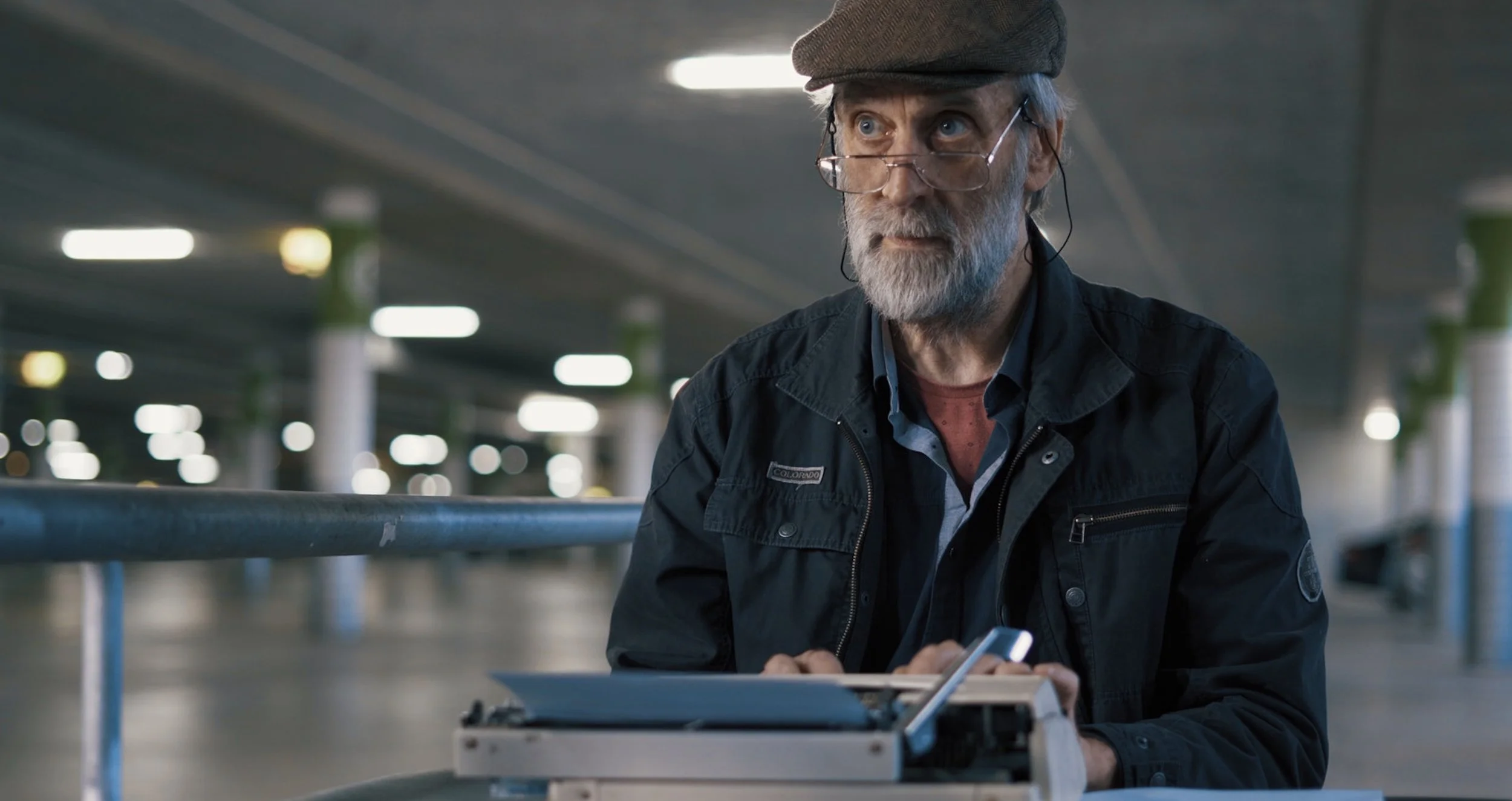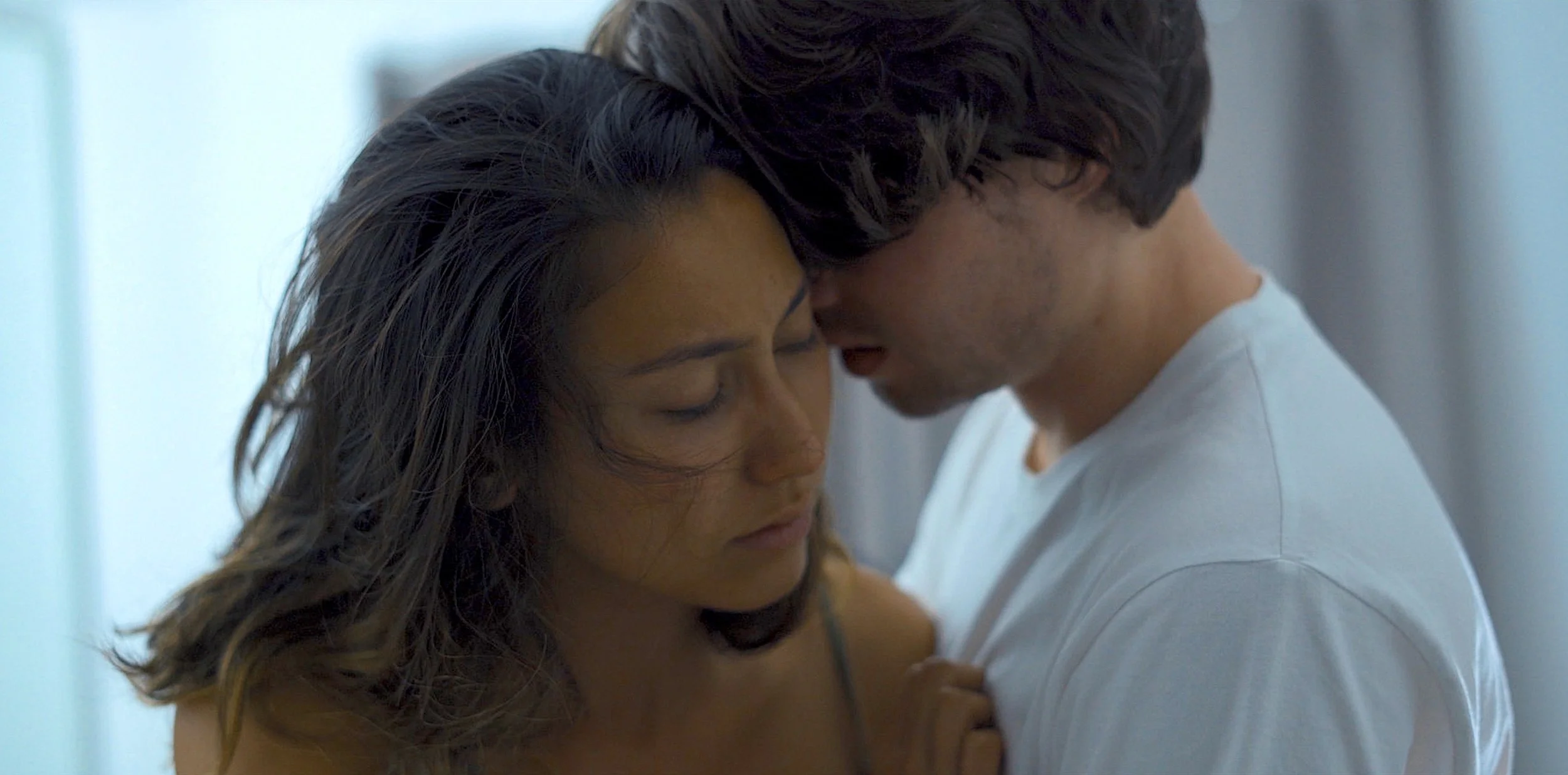Screen-Space Review | Dreams of Paper & Ink
Stars: Tamara Lee Bailey, William Servinis, Neal Bosanquet, Marlene Magee, Emily Rok, Christopher Jordan, Sorcha Johnson and Anisa Mahama.
Writer/director: Glenn Triggs
Rating: ★ ★ ★ ★
An ageing author undertakes a melancholy journey through his earliest memories of love in Dreams of Paper & Ink, the latest work of independent sector inspiration from writer-director Glenn Triggs. A dialogue-free recounting of the first pangs of romance as recalled through the lens of age and wisdom, Triggs has crafted a film that draws upon his audience’s own experiences as much as it does his lead characters. Minus the spoken word, Dreams of Paper & Ink evokes the universal joys and pains of that first heartfelt connection.
The latest book from author Wade Gibson (Neal Bosanquet) is a fanciful medieval adventure that stumbles upon release, so much so that his publisher asks for something more personal - an account of that first time that love took hold of his heart. The assignment sends the author into a melancholy tailspin, as he commits to truthfully recalling how his younger self (William Servinis) fell for and wooed the free-spirited Kina (Tamara Lee Bailey).
Triggs stages the older Wade’s writing process by placing the author and his typewriter in the very moment with his recollections. This creates a kind of ‘greek chorus’ effect, providing the audience with an emotional barometer, a gauge of the old man’s reactions to his own immaturity and romantic missteps. Initially, there is an overarching “Youth is wasted on the young” theme to Wade’s observations, but soon he comes to realise that it was his selfish flaws that extinguished in Kina the very essence that drew him to her.
The three leads are ideally cast, none more so than Bailey as Kina. Her joyous first onscreen impression, longings for deeper connection with young Wade and heartbreaking recognition that the magic has dissolved are conveyed with profundity by the young actress, who shares a convincing chemistry, in times both good and bad, with an equally terrific Servinis. As the older Wade, Bosanquet is wonderful in projecting the sense of personal revelation his journey comes to represent. As Wade’s wife, Marlene Magee is lovely as the woman that has come to represent love as a truly shared journey.
‘Dialogue-free’ does not mean wordless. The lyrics of evocative songs and the prose of notes written between lovers take on added emphasis, both narratively and emotionally. Music and image convey both the thrall of that initial connection and the chilliness of love’s final hours. Triggs sets himself a true storytelling challenge, and pulls it off with a skill he’s honed in his past genre works (Cinemaphobia, 2009; 41, 2012; Apocalyptic, 2014; The Comet Kids, 2016). His first ‘serious drama’, Dreams of Paper and Ink confirms his status as one of the most interesting and accomplished independent voices in Australian film.

